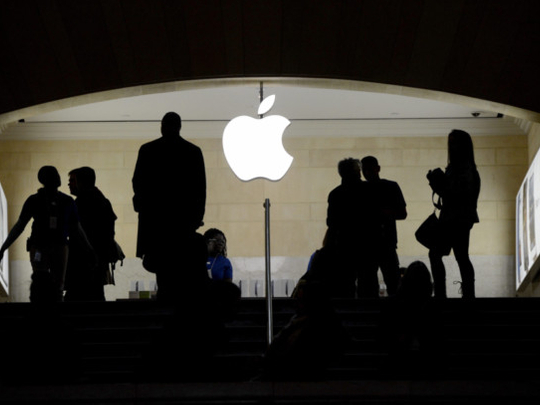
Reuters: Apple Inc’s shareholders have been hit by one of the bloodiest weeks in the history of the stock, but wider fallout from such weakness might more important to the long-term value of their investments.
While Apple’s iPhones, iPads and Macs remain gold standards, signs the company is losing some of its edge in the smartphone market suggest its clout with business partners could wane.
Recent comments from executives at phone carriers and component suppliers show they see room for at least some shift in the balance of power.
In particular, a move by No 4 US mobile service provider T-Mobile USA to stop subsidising smartphones around the time it starts selling the iPhone in three months’ time may put pressure on Apple, especially if other carriers follow the example.
US phone companies mostly subsidise handsets in return for two-year contracts. If customers start paying the full price for an iPhone they might look for cheaper alternatives.
Asked whether carriers are now in a better position to negotiate lower prices with smartphone makers such as Apple, Fran Shammo, chief financial officer of Verizon Communications, said having four strong platforms — Apple, Android, Windows and BlackBerry — is leading to more competitive pricing.
“The more operating systems we have to compete in this area the better the competition,” he told Reuters.
Verizon Communications Inc is the majority owner of Verizon Wireless, the biggest US mobile provider.
Apple sold a record 48 million iPhones in the December quarter, but its share of the overall market is expected to peak this year at 22 per cent and become dependent on repeat business from loyal customers unless it accepts lower margins by making low-cost iPhones, according to ABI Research.
Meanwhile, arch-rival Samsung Electronics Co Ltd, with a range of handsets, has overtaken Apple as the world’s top smartphone seller.
If Apple’s customers and suppliers, let alone rivals, smell blood and take a much harder line in negotiations, it could erode Apple’s gross margins, which slipped to 38.6 per cent in the last quarter from 44.7 per cent a year ago.
Apple declined to comment on its business with partners, although when CEO Tim Cook was asked on an earnings conference call last July about subsidies potentially being reduced, he said the total subsidy carriers pay is fairly small compared with revenues over a two-year contract. He also said carriers told him the iPhone has many advantages, including lower churn rates and the ability to sell shared data plans for other Apple products such as the iPad.
Certainly, Apple’s astounding run over the past decade and ever-rising volume of iPhone sales have given it unrivaled power to negotiate with wireless carriers and component suppliers.
Last week’s results fell short of Wall Street’s estimates, sending Apple’s share price down more than 14 per cent. That underscored signs Apple is coming back down to earth, transforming from undisputed Wall Street darling to a more normal — if enormous and hugely profitable — company.
A less powerful Apple could be welcomed by telecommunications carriers and component suppliers that have grown accustomed to the tough terms Apple was able to exact thanks to its massive scale and leadership in the market.
Wireless carriers that once agreed to unfavourable contracts and hefty subsidies still cannot live without Apple, but experts say they could have more leeway in the future if Samsung and other device makers continue to grab market share.
Subsidies have been a major driver of the iPhone’s success and in boosting Apple’s earnings. Analysts estimate operators pay a subsidy of $400 (Dh1,469) for each iPhone they sell in comparison with subsidies of $250 to $300 for other smartphones.
But that may already be changing. T-Mobile USA, a unit of Deutsche Telekom AG, has not disclosed the details of its deal with Apple, but CEO John Legere said it will not be as onerous as Sprint Nextel’s commitment to pay $15.5 billion (Dh56.93 billion) over four years. Instead of subsidising smartphones, T-Mobile USA will let consumers pay the full price in monthly installments.
If subsidies are removed and payment plans widely adopted, some experts say consumers might opt for cheaper devices and in content, there are already signs of resistance. The company is meeting media executives in a potential effort to transform the living room with some kind of new Apple TV product, sources have said.
Its efforts are hindered, however, by the reluctance of movie and TV programme makers to make content deals favourable to Apple. They saw how Apple’s iTunes service helped decimate recording industry profits some years ago and they are very wary as a result, sources and analysts say.
But even with slower growth, Apple is still widely seen as a highly successful company with a bright future and plenty of potential to produce another revolutionary product.
“What rabbit will Apple pull out of its hat to once again transform the industry?” asked Joseph Doyle, who co-manages wealth management firm Morris Capital Advisors’ large cap strategy. “And if they can’t do it, does that make it an awful investment? No, that will make it more like everything else.”










